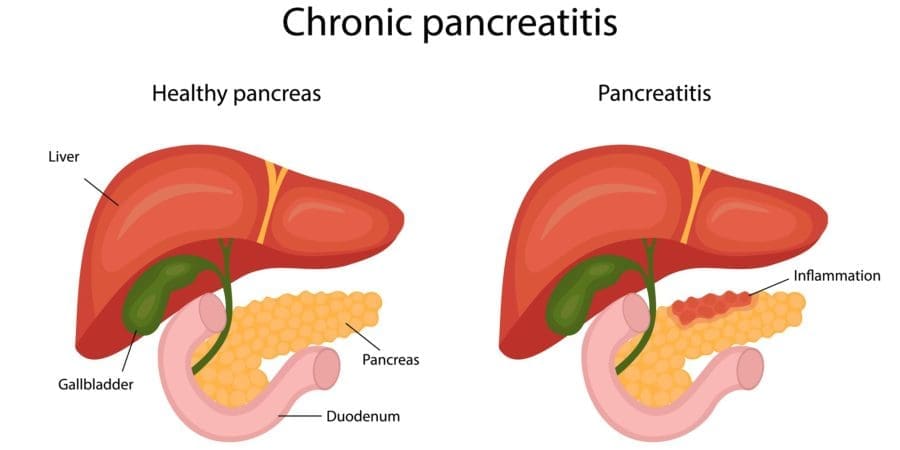In an era where health and wellness are at the forefront of our collective consciousness, understanding the full spectrum of what influences our well-being is more important than ever. “What is Behavioral Health?” This question opens the door to a comprehensive exploration of how our actions, choices, and lifestyle impact not just our mental state, but our physical health as well.
This article delves into the intricate world of behavioral health, unraveling its various facets, including behavioral health counseling, the integrated approach in healthcare, and the differences between behavioral health and mental health.
We’ll also shed light on the crucial roles of behavioral health services, specialists, and technicians, guiding you through the nuances of this vital field. Join us as we embark on this informative journey, offering insights and answers to some of the most pertinent questions surrounding behavioral health today.
If you or someone you know needs Inpatient Behavioral Health Services, taking action sooner than later could save a life. Call Ridgeview Behavioral Hospital today at (419) 863-5556 .
What is Behavioral Health?

Behavioral Health Definition
Behavioral health delves into how our actions, habits, and lifestyle choices influence our physical and mental wellbeing. It’s a concept that extends beyond the confines of traditional mental health to encompass a wide array of factors that affect our overall health.
The Genesis and Evolution of Behavioral Health
The term ‘behavioral health’ emerged as a pivotal concept in healthcare during the latter part of the 20th century. This evolution signified a paradigm shift from a narrow focus on physical symptoms and diseases to a more inclusive view that interlinks mental health, physical health, and lifestyle behaviors. It marked the recognition that our behavioral patterns, such as nutritional choices, exercise routines, and substance use, exert a profound impact on our health.
Behavioral Health in Modern Times
In contemporary discussions, ‘behavioral health’ often overlaps with ‘mental health,’ yet it spans a broader spectrum. It’s a term widely used in various settings, including clinical environments focusing on behavioral health counseling and programs promoting integrated behavioral health approaches. This comprehensive term also underpins discussions differentiating behavioral health from mental health.
Key Aspects of Behavioral Health
Behavioral health is multi-faceted, involving several crucial elements:
- Mental Health: This aspect underscores the significance of emotional and psychological wellbeing, encompassing more than just the absence of mental illness but also the capacity to cope with life’s challenges.
- Substance Use and Abuse: This facet focuses on the impact of substances like drugs, alcohol, and tobacco on an individual’s health and quality of life.
- Lifestyle Choices and Habits: This includes everyday activities and decisions, from dietary habits to physical activity levels, that play a pivotal role in influencing health.
What is Behavioral Health Counseling?
Behavioral health counseling is a specialized field aimed at helping individuals identify and modify harmful behaviors. This form of counseling plays a crucial role in managing and transforming behaviors that adversely impact health.
The Scope of Behavioral Health Services
Behavioral health services are essential in providing holistic care. They encompass a wide range of interventions and support systems designed to address both mental health issues and the behavioral aspects that contribute to physical health challenges.
What is Integrated Behavioral Health?
Integrated Behavioral Health Definition
Integrated behavioral health represents a comprehensive approach, blending traditional medical treatments with behavioral health interventions. This method acknowledges the inseparable link between mental and physical health, striving to treat the individual as a whole rather than focusing on isolated symptoms or conditions.
Historical Context and Development of Integrated Behavioral Health
The concept of integrated behavioral health has its roots in the recognition that physical ailments can have psychological components and vice versa. Over the years, this approach has evolved, driven by evidence that combining mental health, substance abuse, and primary healthcare leads to better patient outcomes.
Integrated Approach in Practice
In practical terms, integrated behavioral health often involves collaboration among various healthcare professionals, including doctors, behavioral health counselors, and specialists. This team-based approach ensures that patients receive well-rounded care, addressing both their physical and psychological needs.
The Significance of Integrated Behavioral Health
Integrated behavioral health plays a pivotal role in:
- Holistic Patient Care: It goes beyond the traditional boundaries of healthcare, ensuring that both mental and physical aspects of health are equally addressed.
- Improved Health Outcomes: By treating the whole person, integrated care often leads to better overall health outcomes, reduces the stigma around mental health care, and promotes more effective management of chronic diseases.
- Cost-Effectiveness: This approach can be more cost-effective, reducing the need for multiple separate treatments and potentially lowering the overall cost of healthcare.
Challenges and Solutions of Integrated Behavioral Health
Implementing integrated behavioral health is not without its challenges, including the need for effective communication among healthcare providers and the integration of various healthcare systems. However, with the advancement in collaborative practices and healthcare technologies, these challenges are increasingly being addressed.
Integrated Behavioral Health Services
Integrated behavioral health services may include a range of interventions from psychological counseling, psychiatric evaluations, to lifestyle coaching and medical treatment. These services are designed to be flexible, catering to the unique needs of each patient.
What is the Difference between Behavioral Health and Mental Health?
Exploring the Distinction
While closely related, behavioral health and mental health are not identical concepts. Understanding their differences is crucial for appropriate care and treatment.
Behavioral Health: A Broad Spectrum
Behavioral health encompasses a wide range of factors that influence a person’s well-being. This includes not only mental health conditions but also behaviors that impact physical health, such as eating habits, exercise, substance use, and sleep patterns. It’s a comprehensive term that addresses the impact of lifestyle and behaviors on an individual’s overall health.
Mental Health: A Focused Aspect
Mental health, on the other hand, specifically refers to the emotional, psychological, and social well-being of a person. It is concerned with how individuals think, feel, and behave, but it does not broadly cover lifestyle choices and behaviors. Mental health is about coping with life’s stresses, working productively, and contributing to the community.
Interplay and Overlap
While distinct, behavioral health and mental health often overlap. For instance, mental health issues can lead to behavioral problems, and unhealthy behaviors can exacerbate mental health conditions. Integrated care models often address both aspects to provide comprehensive treatment.
The Role of Behavioral Health in Mental Health
Behavioral health interventions can play a significant role in the management and treatment of mental health issues. Lifestyle changes and behavioral modifications are often integral parts of treatment plans for mental health conditions.
Understanding in Healthcare Context
In the healthcare context, distinguishing between behavioral health and mental health is essential for developing effective treatment strategies. It allows healthcare providers to address the full range of issues affecting an individual’s health and well-being.
What are Behavioral Health Services?

Behavioral Health Services Definition
Behavioral health services are a broad spectrum of care and support provided to individuals dealing with behavioral health challenges. These services are integral to both preventative healthcare and the treatment of existing conditions.
Behavioral Health Services Scope and Range
Behavioral health services encompass a wide array of interventions and support mechanisms. They include, but are not limited to:
- Counseling and Therapy: Services provided by trained professionals to address mental health issues, life stresses, and behavior modification.
- Psychiatric Services: Including assessments, diagnoses, and treatment plans, often involving medication management for mental health disorders.
- Substance Abuse Treatment: Specialized programs and interventions designed to address issues related to the misuse of alcohol, drugs, and other substances.
- Preventative Programs: Initiatives aimed at promoting healthy behaviors and preventing the development of behavioral health issues.
- Rehabilitation Services: Helping individuals recover from severe mental illnesses, substance use disorders, or behavioral issues, often involving a combination of therapy, counseling, and medication.
The Importance of Behavioral Health Services
Behavioral health services play a critical role in:
- Improving Quality of Life: By addressing both mental and behavioral aspects, these services enhance overall well-being.
- Reducing the Burden of Mental Illnesses: Effective behavioral health services can lead to better management of mental health conditions, reducing their impact on individuals and society.
- Promoting Overall Health: These services help in recognizing and modifying unhealthy behaviors, contributing to better physical health outcomes.
Behavioral Health Services Accessibility and Integration
Ensuring the accessibility and integration of behavioral health services into general healthcare is crucial. This involves not only providing these services but also making them easily accessible and part of a holistic healthcare approach.
For example, two types of behavioral health services offered by Ridgeview Hospital are adult psychiatric care and co-occurring substance abuse disorder treatment. In order to give a more comprehensive overview of behavioral health services, here is a breakdown of both:
Absolutely, let’s craft sections about “Adult Psychiatric Care” and “Co-Occurring Substance Abuse Disorder (Dual-Diagnosis) Treatment,” highlighting what these services entail, their treatment approaches, and their benefits. These will be in the context of services offered by Ridgeview Behavioral Hospital.
Adult Psychiatric Care
Adult Psychiatric Care focuses on diagnosing and treating mental health disorders in adults. This specialized care addresses a range of conditions, from anxiety and depression to more severe psychiatric disorders.
Treatment Approaches
- Personalized Therapy: Tailored psychotherapy sessions to address individual mental health needs.
- Medication Management: Utilizing medications effectively to manage symptoms and improve quality of life.
- Support Groups: Offering group sessions for shared experiences and mutual support.
- Holistic Interventions: Incorporating lifestyle changes, stress management techniques, and wellness activities.
Benefits of Adult Psychiatric Care
- Improved Mental Health: Effective management of symptoms leads to better mental health and overall well-being.
- Enhanced Coping Skills: Patients learn strategies to cope with stressors and challenges.
- Increased Functionality: Improved mental health contributes to better performance in personal and professional life.
- Support Network: Building a community of support with healthcare professionals and peers.
Co-Occurring Substance Abuse Disorder (Dual-Diagnosis) Treatment
Understanding Dual-Diagnosis Treatment
Dual-Diagnosis Treatment addresses the complex scenario where an individual simultaneously experiences a mental health disorder and a substance abuse problem. This integrated treatment approach is essential as one condition can often exacerbate the other, especially in cases like veterans with PTSD.
Treatment Modalities
- Integrated Therapy: Combining treatment for substance abuse and mental health disorders for a comprehensive approach.
- Behavioral Therapies: Utilizing techniques like Cognitive Behavioral Therapy (CBT) to modify harmful behaviors and thought patterns.
- Medication-Assisted Treatment (MAT): Using medications in combination with counseling and behavioral therapies.
- Peer Support and Education: Providing education about both conditions and fostering peer support networks.
Benefits of Dual-Diagnosis Treatment
- Comprehensive Care: Addressing both mental health and substance abuse leads to more effective treatment outcomes.
- Reduced Relapse Risk: Integrated treatment helps in reducing the risk of relapse.
- Improved Quality of Life: Patients gain tools and support to manage their conditions, leading to a healthier lifestyle.
- Holistic Recovery: Focuses on the overall well-being of the individual, not just symptom management.
What is a Behavioral Health Specialist?

Behavioral Health Specialist Definition and Role
A Behavioral Health Specialist is a professional who plays a key role in the field of behavioral health. They are trained in various aspects of mental health, substance abuse, and behavioral therapy.
Behavioral Health Specialist Responsibilities
Their responsibilities typically include:
- Assessment and Diagnosis: Evaluating patients to identify behavioral, mental, and emotional issues.
- Developing Treatment Plans: Creating tailored strategies to address specific behavioral health needs of patients.
- Counseling and Therapy: Providing psychological support and therapy to patients.
- Collaboration with Healthcare Teams: Working alongside other healthcare professionals to provide comprehensive care.
Behavioral Health Specialist Qualifications and Skills
Behavioral Health Specialists are usually required to have advanced degrees in psychology, social work, or a related field. They are skilled in communication, empathy, and are well-versed in various therapeutic techniques.
Importance in Healthcare
Behavioral Health Specialists are vital in bridging the gap between physical and mental health care. They help in addressing complex behavioral health issues that require a nuanced understanding of both mental health and behavioral interventions.
What is a Behavioral Health Technician?
Overview of the Behavioral Health Technician Role
A Behavioral Health Technician (BHT) works under the supervision of a licensed healthcare professional to provide care for patients with behavioral disorders, mental health issues, or substance abuse problems.
Behavioral Health Technician Key Responsibilities
Their duties often include:
- Supporting Treatment Plans: Assisting in the implementation of care plans designed by healthcare professionals.
- Patient Monitoring: Observing and recording patient behavior, and reporting changes to supervisors.
- Direct Patient Care: Providing direct support, such as facilitating group activities or teaching life skills.
- Crisis Intervention: Responding to patient crises and providing immediate support or intervention.
Behavioral Health Technician Training and Skills
Behavioral Health Technicians typically require a high school diploma or equivalent, along with specialized training in behavioral health. They must possess strong communication skills, patience, and the ability to work effectively in challenging situations.
Behavioral Health Technicians’ Role in the Healthcare System
BHTs are essential in the day-to-day operations of behavioral health facilities. They provide the necessary support that enables patients to engage in their treatment plans effectively and ensure the smooth running of healthcare services.
Next Steps
As we’ve explored throughout this comprehensive guide, behavioral health is an inclusive term that encompasses not only mental health but also the behaviors that impact our overall well-being. From the broad spectrum of behavioral health services to the specialized roles of Behavioral Health Specialists and Technicians, each element plays a crucial role in providing holistic care.
Summarizing Key Insights
- Behavioral Health: A term that extends beyond mental health to include behaviors affecting physical and mental well-being.
- Integrated Behavioral Health: A collaborative approach that merges traditional medical treatments with behavioral health interventions for holistic care.
- Behavioral Health vs. Mental Health: While interrelated, these terms are distinct, with behavioral health covering a broader scope than mental health.
- Behavioral Health Services: These services encompass a range of interventions, including counseling, psychiatric services, and substance abuse treatment.
- Behavioral Health Specialist: A professional equipped to assess, diagnose, and treat various behavioral health issues.
- Behavioral Health Technician: A key support role, assisting in the implementation of treatment plans and patient care.
Taking the Next Step
Understanding the nuances of behavioral health is the first step towards seeking appropriate care and support. Whether you’re dealing with mental health challenges, substance abuse, or seeking to improve your overall well-being through behavioral changes, professional help can make a significant difference.
Reach Out for Support
If you or someone you know needs Inpatient Behavioral Health Services, don’t hesitate to take action. Ridgeview Behavioral Hospital is here to provide comprehensive, compassionate care tailored to individual needs.
📞 Call Ridgeview Behavioral Hospital at (419) 863-5556
Our dedicated team of professionals is ready to support you on your journey towards better health and well-being.
A behavioral health technician supports the treatment of individuals with behavioral disorders, mental health issues, or substance abuse problems, assisting in implementing care plans and providing direct patient support under professional supervision.
A behavioral health specialist is a professional trained in diagnosing and treating a variety of behavioral health issues, often providing counseling, therapy, and creating treatment plans for mental health and substance use disorders.
Behavioral health services encompass a range of interventions and support for mental health issues, substance abuse, and behavioral challenges, including counseling, psychiatric care, and rehabilitation programs.
The key difference lies in scope: behavioral health covers a broader range, including mental health, substance use, and behaviors affecting health, while mental health focuses specifically on emotional, psychological, and social well-being.
Behavioral health counseling is a therapeutic approach focusing on modifying behaviors and lifestyle choices to improve mental and physical well-being, often addressing mental health issues alongside.
Behavioral health refers to the interplay between behavior and the health of the mind, body, and spirit, encompassing mental health, substance use, and lifestyle choices impacting wellness.





















